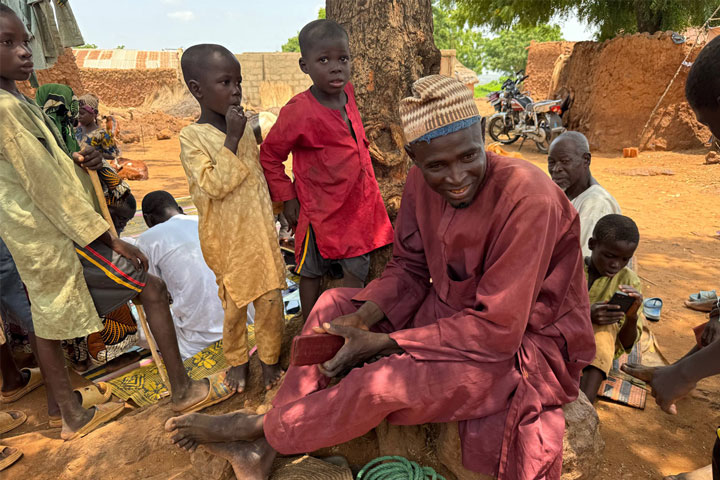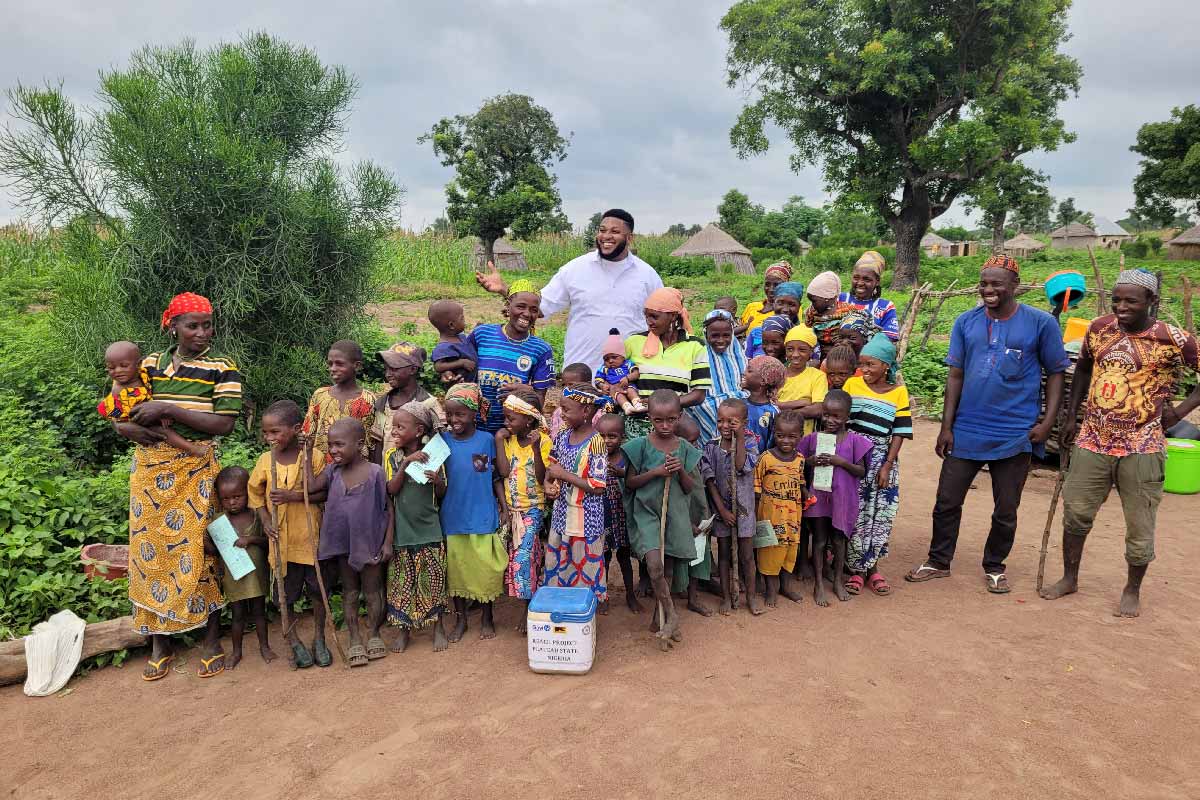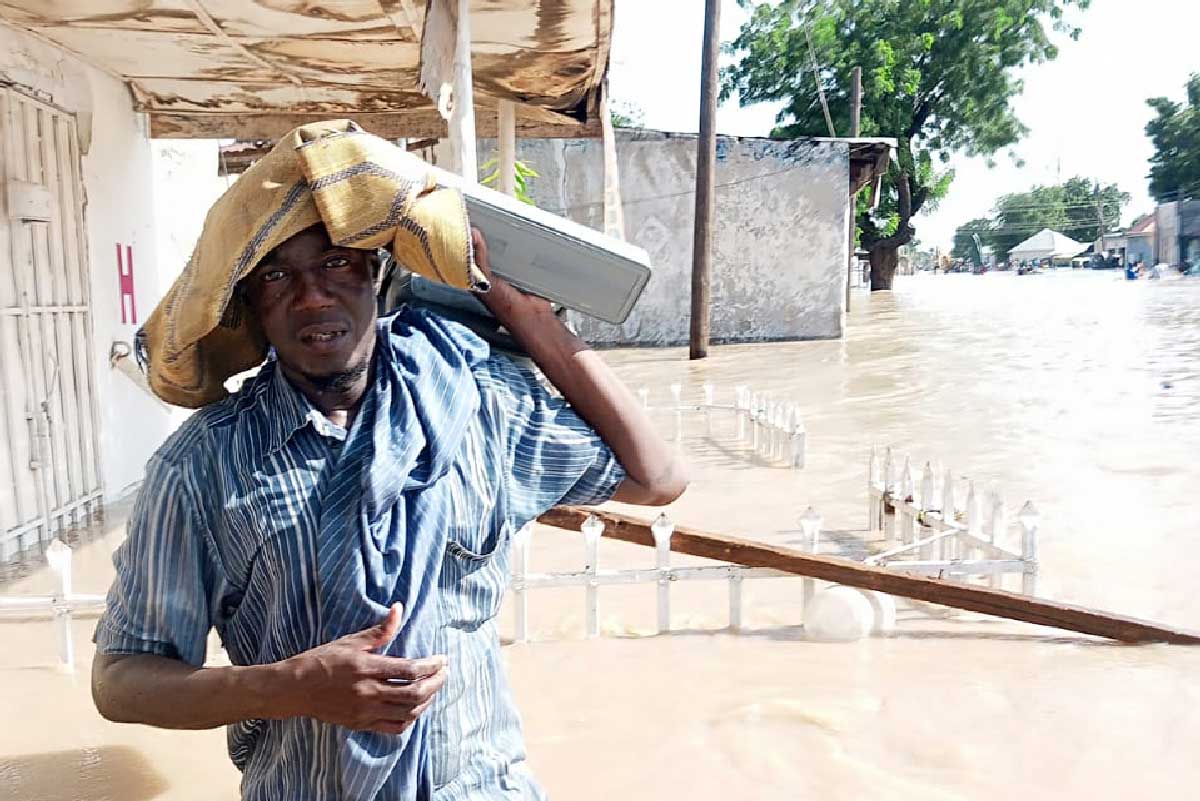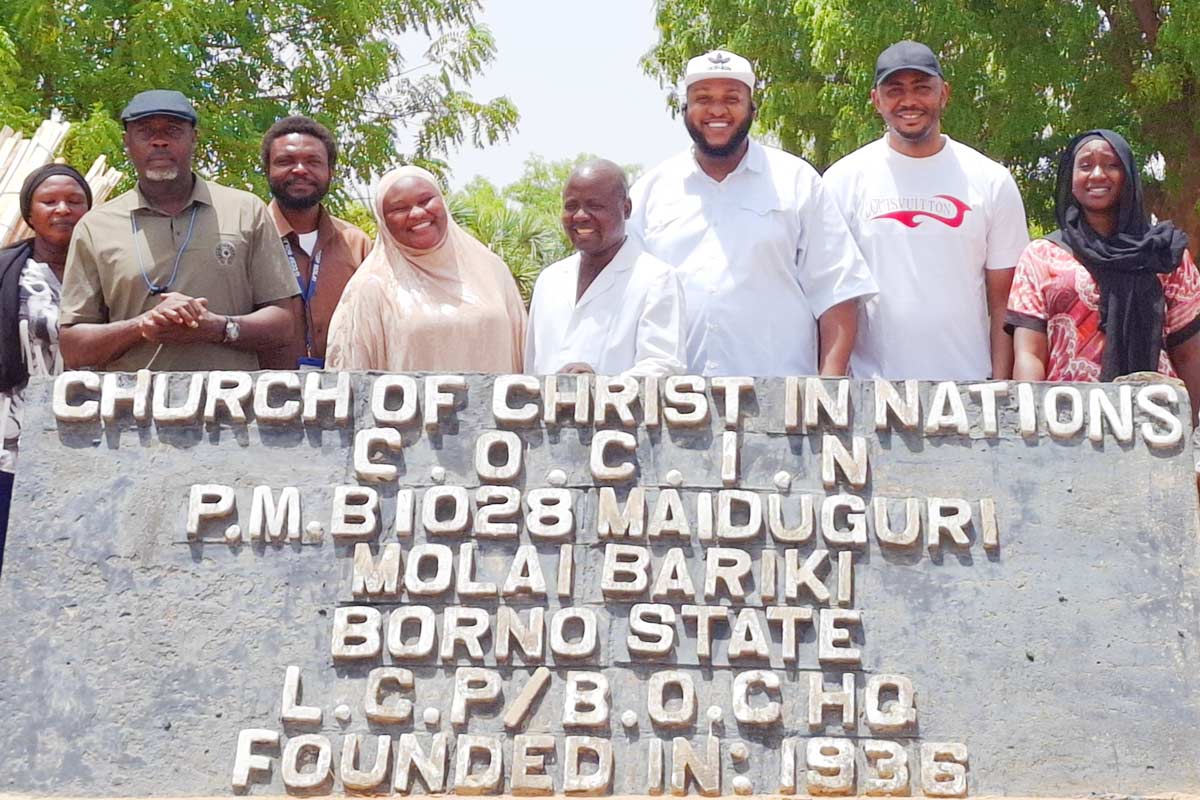How a vaccine-wary community in Borno state got protected
Caution makes sense in conflict-affected Basheti community – but mistrust of vaccines was leaving children more exposed.
- 5 September 2025
- 4 min read
- by Christian Health Association of Nigeria (CHAN)
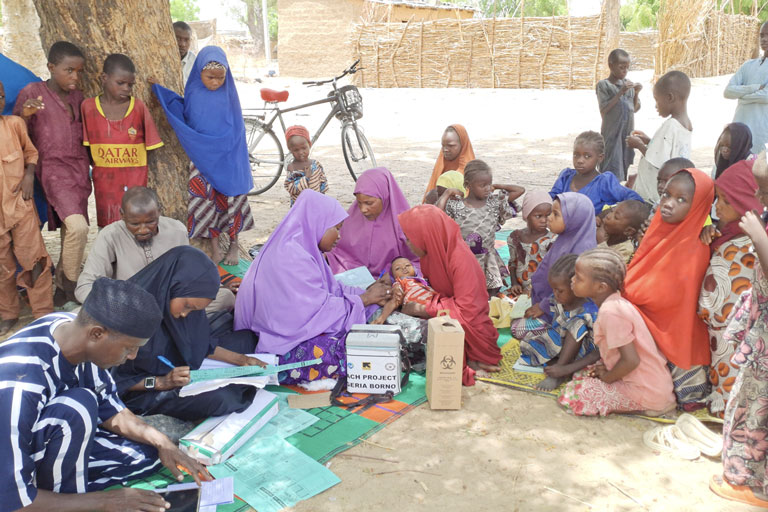
As the vehicle neared Basheti community in Dusuman Ward, Jere LGA, Borno State, one of the security-compromised communities where the Christian Health Association of Nigeria (CHAN) delivers vaccines, tension was high. The dusty, narrow road was lined with small huts, and eerily quiet. Just weeks before, violent attacks between the localities of Rann and Gamboru had claimed many lives, with victims including 26 women and children.
At the end of April 2025, the CHAN team had administered 399,780 doses of Nigeria’s set of routine vaccines in Borno state, including 14,062 doses of yellow fever vaccines.
For the CHAN team, the constant threat of violence weighed heavily, making every kilometre a test of determination. But the mission was clear: bring life-saving vaccines to children in Basheti, a community unreached by government immunisation efforts due to conflict-engendered mistrust.
Mistrust and misinformation
This mission is part of the REACH project, implemented by CHAN with support from the International Rescue Committee (IRC) and funded by Gavi, the Vaccine Alliance, which is committed to ensuring children in missed communities impacted by conflict and crisis – like children elsewhere – receive the protection of vaccines.
But in Basheti, amid broader mistrust, scepticism of immunisation had grown. At the centre of the resistance was Bukar Usman*, a respected leader of the local Shuwa-Arab community. As a father of three and guardian of his people’s wellbeing, Bukar’s doubts carried weight far beyond his own family. Misinformation and fear had made him a strong opponent, convincing him that vaccines would do more harm than good. When the CHAN team first arrived, Bukar and other elders refused to talk and turned the team away.
In vaccination programmes worldwide, trusted community leaders or negotiators often play a critical role in bridging gaps between health teams and hesitant populations. Their influence can make or break efforts, especially in difficult or resistant communities. For example, during Nigeria’s polio eradication campaign, engaging traditional and religious leaders helped overcome deep vaccine hesitancy, making sceptics advocates and enabling millions of children to be vaccinated.
Have you read?
Understanding Bukar’s role’s importance, the CHAN team approached with patience and respect. Over the course of a series of conversations, they listened carefully to Bukar and the elders. Using communication techniques suited to the community’s language and culture, they shared clear, factual information about vaccine safety and why it matters.
They also addressed concerns about mild side-effects, explaining what to expect and how to manage them. This helped ease fears and build trust.
The urgency of their efforts was underscored by recent yellow fever outbreaks in Borno State, with 142 suspected cases reported in 2024. Discussing the experiences of children affected by preventable diseases like yellow fever, which Bukar had seen first-hand, helped make the need for vaccination real.
A door opens
Slowly, Bukar and the elders began to change their minds, opening the door for vaccines in Basheti.
The change was remarkable. It was clear no government immunisation teams had reached Basheti before – at least, not in living memory. Where other communities had markings or symbols written on the walls of homes – a practice commonly used by health workers to track which families had been reached with vaccines, Basheti had none.
But now, after months of patient talks and education, the community that once rejected vaccines welcomed the team. Children who had never been vaccinated were now protected from dangerous diseases that had taken many lives.
At the end of April 2025, the CHAN team had administered 399,780 doses of Nigeria’s set of routine vaccines in Borno state, including 14,062 doses of yellow fever vaccines.
The once difficult interlocutor, Bukar Usman, became a strong advocate for vaccines. “We once feared vaccines, but now we know they save lives,” he said. “I tell everyone in my community to protect their children.”
This change did more than improve health. It strengthened the community in a region challenged by insecurity and poor access to formal healthcare. By building trust and working together, CHAN helped turn fear into hope, giving Basheti’s children a better chance at a good future – and a healthy one.
But negotiating access is not a one-time event – nor the work of building a single relationship – but an ongoing process essential for delivering vital health services in fragile and conflict-affected areas.
How is Gavi supporting CHAN?
Gavi’s Humanitarian Partnerships Programme, also known as ZIP, funds partner organisations with specific expertise navigating humanitarian crisis. The aim? To deliver all scheduled vaccine doses to children from birth to age five in communities where conflict impedes the access of government-provided health services.
CHAN, operating in troubled parts of northern Nigeria, is one such specialist organisation, and is operating as part of the IRC-led, ZIP-funded REACH consortium.
As of July 2025, ZIP had provided more than 2.1 million children growing up in crisis zones with their very first vaccine, and 1 million children with their last recommended dose, leaving them fully immunised.
*not his real name
